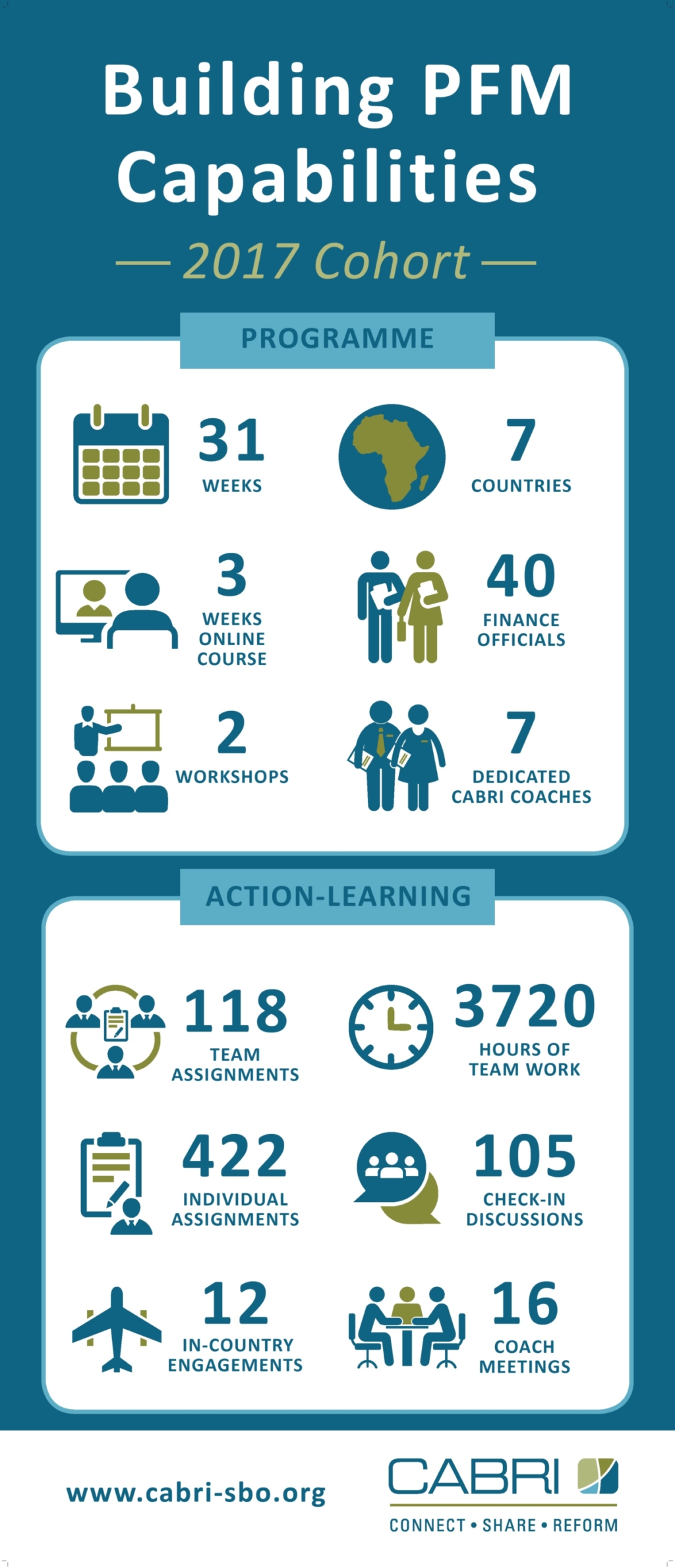For the past 30 years, governments across Africa have been implementing public financial management (PFM) reforms with mixed results. While budgets, laws and processes have improved, they are often not effectively implemented (Andrews 2010). Technical solutions, commonly copied from upper-income countries, do not always take into account the local context and can lead to capacity gaps and a lack of ownership when the project finishes and the consultants leave.
A multimillion dollar project in Ghana to introduce a new financial management information system was later deemed as “overly complex, when simple spreadsheets could have done the job” and created “a very big conceptual, technical, and managerial challenge” (World Bank 2008). Similarly, a project to introduce a Medium Term Expenditure Framework (MTEF) in Ghana used activity-based budgeting, “which generated voluminous, highly detailed documents, which made it difficult to discern the strategies and priorities underlying MDA budgets, thus effectively defeating the purpose of the exercise” (OECD 2012).
It might not come as a surprise then that Ghana’s president, Nana Akufo-Addo, had the following to say last week while at a joint press conference with visiting French president Emmanuel Macron:
“We can no longer continue to make policy for ourselves, in our country, in our region, in our continent on the basis of whatever support the western world or France, or the European Union can give us. It will not work. It has not worked and it will not work. Our responsibility is to charter a path which is about how we can develop our nations ourselves.”
Research at the Building State Capability (BSC) program focuses on how governments can solve their own problems, using their own resources and their own ideas. And earlier this year, our BSC team collaborated with CABRI to work with government teams from 7 African countries to do just that.
In May 2017, self-selected teams from Ghana, Liberia, Lesotho, Nigeria, Sierra Leone, South Africa and The Gambia attended a workshop in South Africa, equipped with a pressing PFM problem that they would like to solve. Over four days, the teams were guided through a process of creating a problem statement that matters, deconstructing the problem to its root causes, identifying suitable entry points for action for the next two weeks and deciding what success would look like in six months. Each team was also paired with a coach from CABRI to support the team.

After the workshop, we stayed connected with the teams with frequent online individual and team assignments, asking for updates on what was done, what was learned, and what was next. The CABRI coaches also held regular check-ins with their teams (both remote and in-person) to keep the teams motivated and on track.
Next week (December 11-13) we will all meet again in South Africa for a final workshop where the teams will present on what they have achieved and learned over these 7 months and what is next. There will also be plenty of opportunities for peer learning, as the teams will give structured feedback to their colleagues after each presentation. The workshop’s focus is all about the teams as they are the ones that have done all of the work.
Collaborating with an organization to conduct PDIA training is a relatively new approach for BSC and we have been pleased with the results so far. 90% of the government officials completed an evaluation survey and 100% of them rated the quality of the program as excellent or very good. Here is what one participant had to say about the experience:
“This program is unique and different to any PFM training I have attended. Why? The program took the ‘do it yourself’ approach. It used the local themselves as the experts to define, and with guidance and support from the CABRI team find solution to the defined problem. Other PFM training I attended in the past, like the Medium Term Expenditure Framework training, the experts were those that came from outside with their very exotic ideas that basically left when the ‘experts’ packed off and left. They just didn’t work.”
We are looking forward to hearing from the teams next week and plan to write a few more blog posts in the upcoming days on this topic. You can keep posted here for future updates.
Note: This blog was originally published on the website of The Building State Capability (BSC) program at the Center for International Development (CID) at Harvard University with the title 'Building PFM Capabilities in Africa'